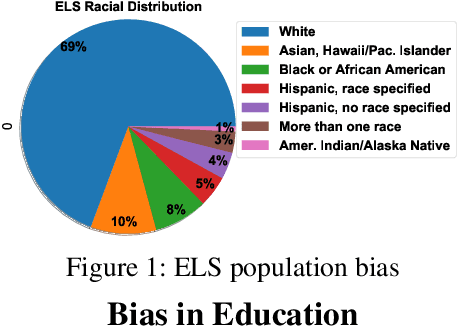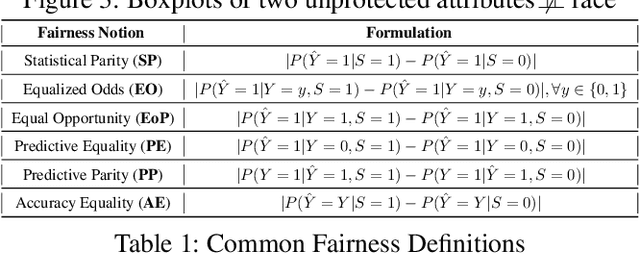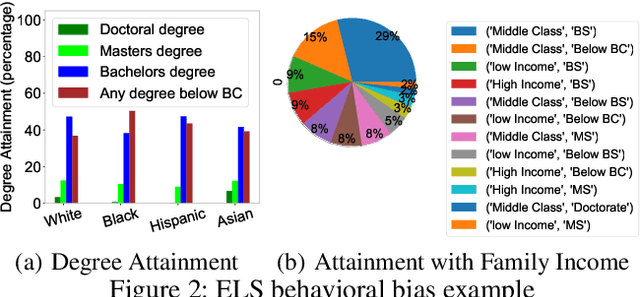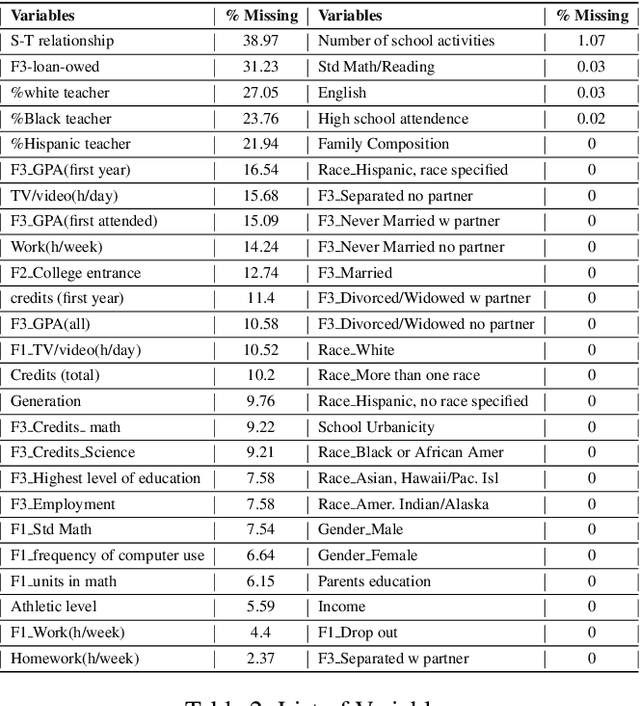Denisa G`andara
Auditing Fairness and Imputation Impact in Predictive Analytics for Higher Education
Sep 13, 2021



Abstract:Nowadays, colleges and universities use predictive analytics in a variety of ways to increase student success rates. Despite the potentials for predictive analytics, there exist two major barriers to their adoption in higher education: (a) the lack of democratization in deployment, and (b) the potential to exacerbate inequalities. Education researchers and policymakers encounter numerous challenges in deploying predictive modeling in practice. These challenges present in different steps of modeling including data preparation, model development, and evaluation. Nevertheless, each of these steps can introduce additional bias to the system if not appropriately performed. Most large-scale and nationally representative education data sets suffer from a significant number of incomplete responses from the research participants. Missing Values are the frequent latent causes behind many data analysis challenges. While many education-related studies addressed the challenges of missing data, little is known about the impact of handling missing values on the fairness of predictive outcomes in practice. In this paper, we set out to first assess the disparities in predictive modeling outcome for college-student success, then investigate the impact of imputation techniques on the model performance and fairness using a comprehensive set of common metrics. The comprehensive analysis of a real large-scale education dataset reveals key insights on the modeling disparity and how different imputation techniques fundamentally compare to one another in terms of their impact on the fairness of the student-success predictive outcome.
 Add to Chrome
Add to Chrome Add to Firefox
Add to Firefox Add to Edge
Add to Edge